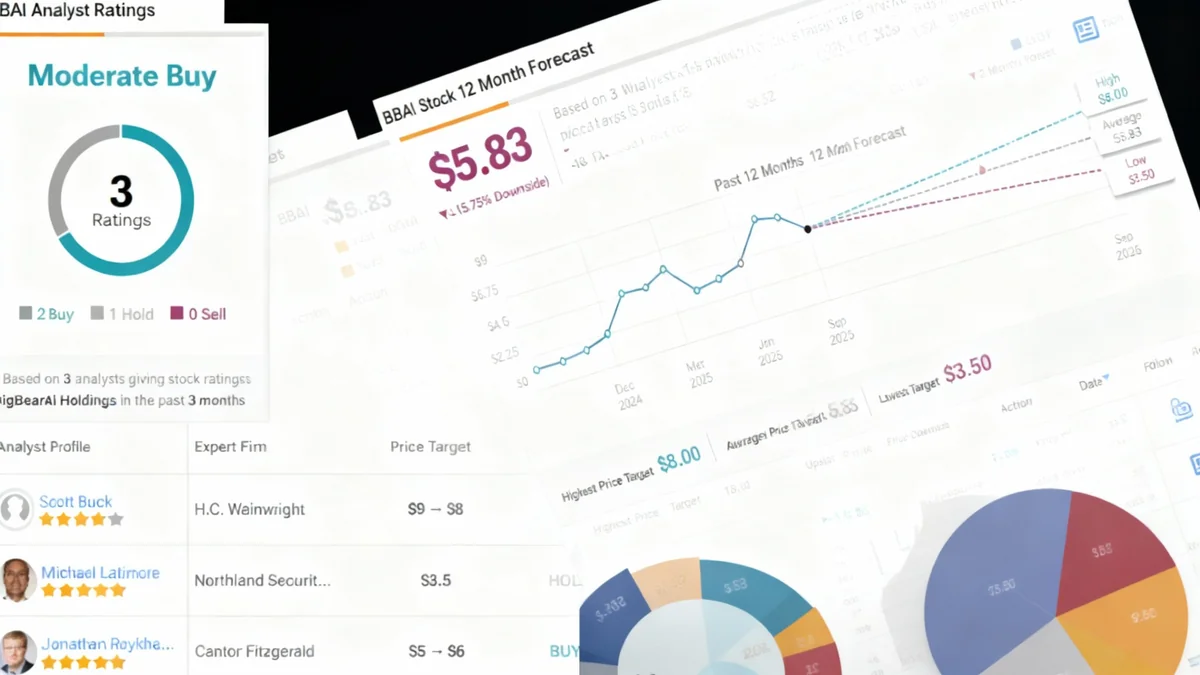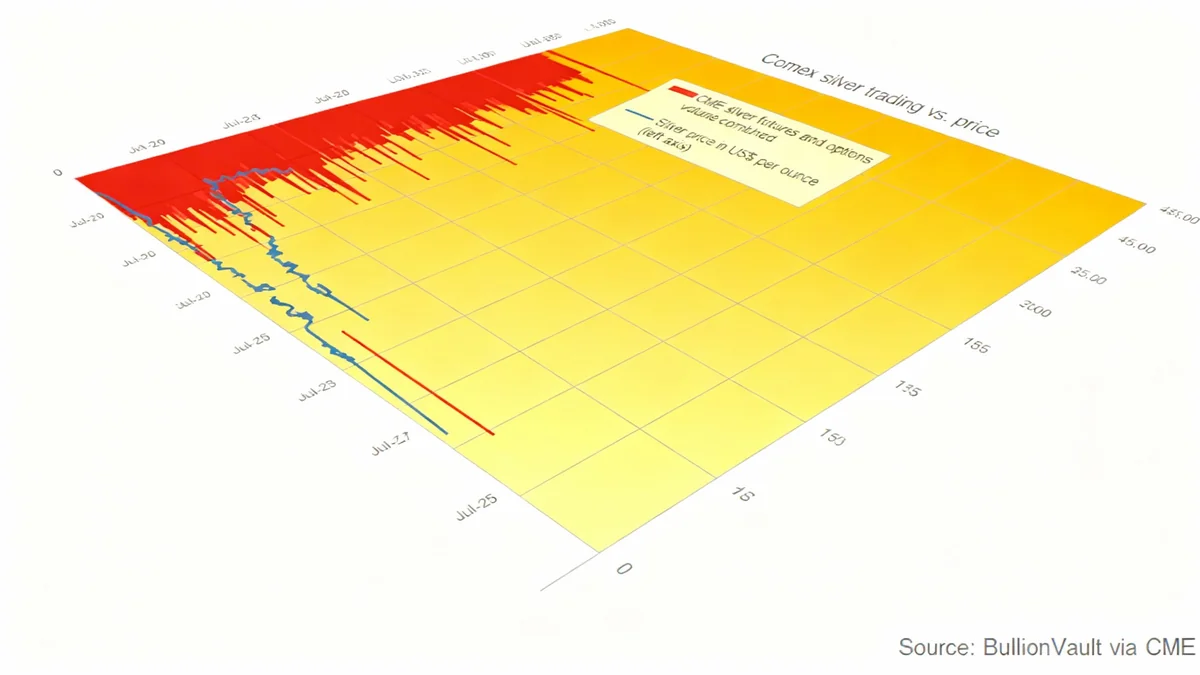BigBear.ai (NYSE:BBAI) has experienced significant stock market swings this year, with shares more than doubling in the early months, only to fall by approximately 75% by late April. This dramatic volatility continued with a surge of over 270% by mid-October, followed by a recent decline of about 22%. Investors are closely watching the company as it navigates ambitions of becoming a major player in the AI sector, similar to Palantir, amidst broader economic uncertainties.
Key Takeaways
- BigBear.ai's stock has seen extreme volatility in 2024, with sharp gains and significant drops.
- The company's AI technology is used in critical national security and government projects.
- Despite technological validation, BigBear.ai reported an 18% year-over-year revenue decline in Q2 and increased losses.
- Analysts maintain a 'Moderate Buy' consensus, but the average price target suggests a potential downside.
- Future performance hinges on effective cash deployment and achieving profitability.
BigBear.ai's Rollercoaster Year on the Market
The year began with a strong upward trend for BigBear.ai, as its stock value soared. However, this momentum proved difficult to sustain. The subsequent sharp decline highlighted the challenges faced by growth-oriented technology companies in a fluctuating market.
The company's journey has been marked by investor optimism fueled by its advanced AI capabilities and its involvement in sensitive government contracts. Yet, these hopes are balanced against financial performance and the broader economic landscape.
Did You Know?
- BigBear.ai's stock surged over 270% by mid-October after an earlier 75% plunge.
- The company's Q2 revenue fell 18% year-over-year.
- BigBear.ai reported a net loss of $228.6 million in Q2, significantly higher than $14.4 million in the prior year.
AI Technology and Government Contracts
BigBear.ai's core strength lies in its AI-powered technology, which is already integrated into national security projects. This real-world application provides a strong validation of the company's capabilities, distinguishing it from many speculative ventures in the AI space.
The company holds multiple contracts with the U.S. government, indicating a significant level of trust from federal agencies in its offerings. This includes involvement in U.S. Navy submarine projects and airport facial recognition systems, showcasing the mission-critical nature of its work.
"When your clients include the U.S. government, failure isn’t just expensive, it’s unacceptable," emphasized top investor Rick Orford, who is among the top 1% of stock professionals covered by TipRanks.
Beyond government applications, BigBear.ai is also expanding its reach into the private sector. Its technology aims to provide "frictionless user experiences" across various industries, further diversifying its client base.
Broader Context: Government Spending
The 'One Big Beautiful Bill' is expected to allocate billions of dollars towards defense and security initiatives. This legislative action could position BigBear.ai as a significant beneficiary of increased government spending, potentially driving future revenue growth and stability.
Financial Performance and Future Outlook
Despite its technological prowess, BigBear.ai has faced financial headwinds. In the second quarter, the company reported an 18% year-over-year decline in revenue. This downturn led the company to revise its full-year outlook downwards, projecting revenue between $125 million and $140 million.
The losses also widened considerably, with a net loss of $228.6 million in Q2, a stark contrast to the $14.4 million loss reported in the same period last year. These figures raise questions among investors about the company's path to profitability.
Rick Orford acknowledged these financial challenges but also pointed to the company's strong cash position. He believes this cash reserve provides a crucial buffer, giving BigBear.ai time to pursue profitability.
"How they deploy that cash next could decide if BigBear becomes the next Palantir or the next penny stock," Orford stated, highlighting the critical nature of upcoming strategic decisions.
Analyst Sentiment and Market Position
On Wall Street, BigBear.ai currently has a 'Moderate Buy' consensus based on the analysis of three experts. Two analysts rate it a 'Buy' and one a 'Hold'. However, the average price target of $5.83 suggests a potential 16% downside from current levels, indicating caution among some analysts despite the positive ratings.
Compared to another emerging AI player, SoundHound AI (SOUN), BigBear.ai's financial growth momentum appears weaker. SoundHound AI is forecast to achieve over 60% year-over-year revenue growth in Q3 and an 89%-110% surge for the full year, despite also remaining unprofitable.
BigBear.ai's reliance on federal contracts, while a source of stability, also presents risks. Political shifts or budget cuts could impact future deals, making diversification and expansion into the private sector increasingly important for long-term growth.
The upcoming third-quarter earnings report will be a critical event for BigBear.ai. A strong performance could help rebuild investor confidence and re-ignite stock momentum. Conversely, continued losses and weak guidance could further weigh on shares, intensifying scrutiny on the company's financial health and strategic direction.





